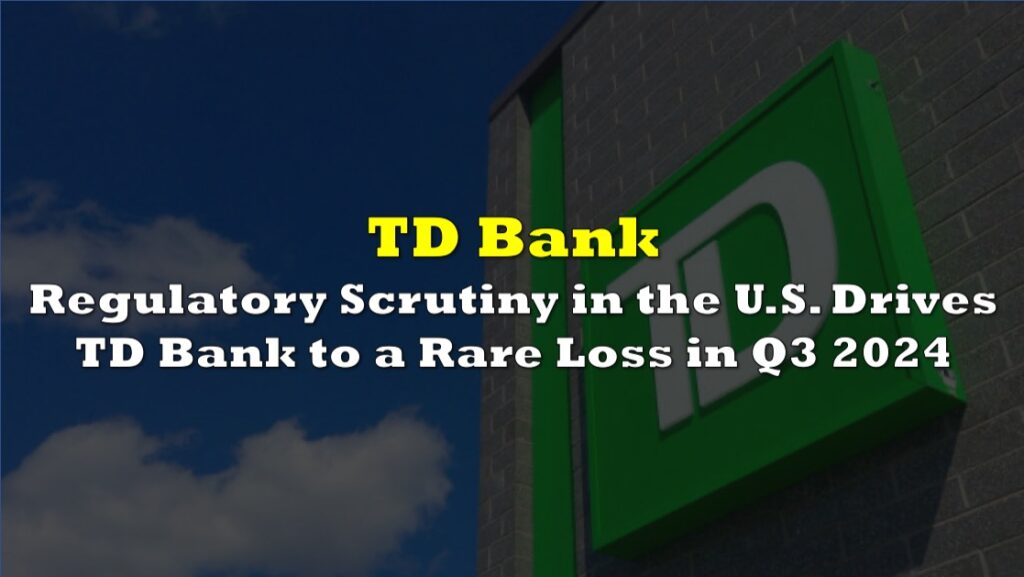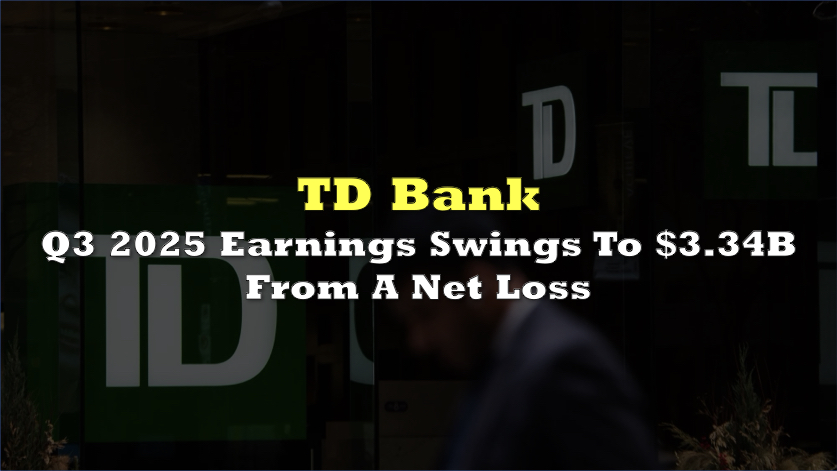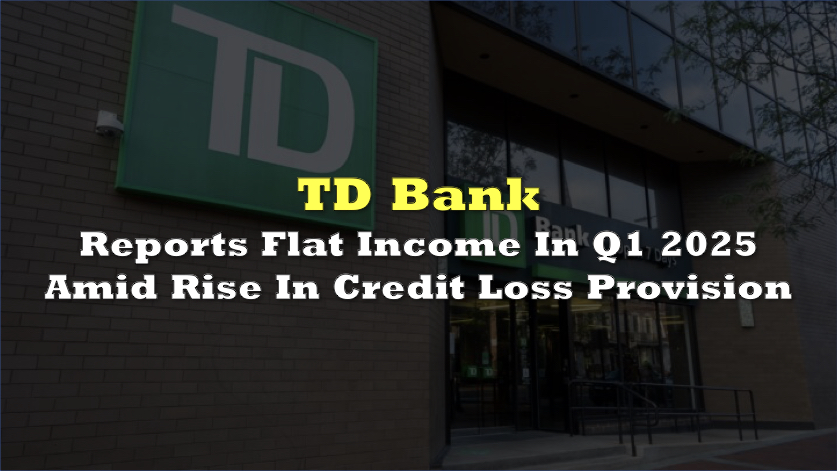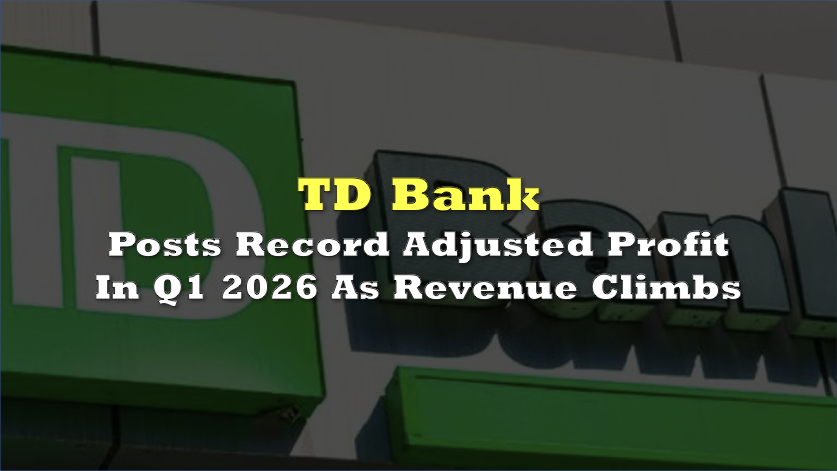TD Bank Group (TSX: TD) is grappling with regulatory restrictions in the United States that threaten to hamper its growth in a key market. The bank has been embroiled in a far-reaching anti-money laundering investigation, culminating in severe financial penalties and now a new limitation: an asset cap on its U.S. retail banking business. This cap restricts the bank’s ability to expand its loan book, a major blow as TD has been looking to the U.S. market for growth opportunities.
During a conference call on Wednesday, TD executives were informed of the finalized decision regarding non-financial penalties tied to the bank’s U.S. operations. These penalties include the imposition of an asset cap, a restriction often reserved for the most serious cases of regulatory violations. This cap will limit TD’s ability to grow its U.S. retail banking division by preventing the addition of new loans, which are considered assets.
The growth restriction does not affect all of TD’s operations in the United States. TD Securities, its investment banking arm, can still expand its balance sheet and provide loans to large corporate clients, but the limitations placed on its retail division could stifle the bank’s broader U.S. growth ambitions.
This is a significant setback for a bank that has spent years and billions of dollars building a strong presence in the United States. Through a series of acquisitions, TD has grown its U.S. footprint to more than 1,100 branches, surpassing its Canadian branch count.
A Longstanding AML Problem
TD’s AML troubles date back to early 2023 when the bank disclosed it was under investigation by multiple U.S. regulators, including the U.S. Department of Justice and the Financial Crimes Enforcement Network, for shortcomings in its compliance systems. These regulatory investigations derailed the bank’s planned US$13.4-billion acquisition of First Horizon Corporation, a move that would have significantly expanded its presence in the southeastern U.S.
Unable to gain regulatory approval, TD walked away from the deal in May 2023.
In addition to scrapping the acquisition, TD set aside $4 billion to cover potential fines from these investigations, a figure that has loomed large over its financial outlook. Recent reports have clarified how the penalties will be divided, with the DOJ receiving US$1.8 billion and FinCEN getting US$1.3 billion, according to The Wall Street Journal.
Bharat Masrani, TD’s outgoing CEO, addressed the scandal in a September statement: “The anti-money laundering challenges we face took place on my watch as CEO, and I take full responsibility. In the coming months, I will continue to advance and direct the critical remediation program required to meet our obligations and responsibilities and strengthen our risk and control foundation.”
The AML investigation has already led to significant financial setbacks for TD. In the third quarter of 2024, the bank reported a rare net loss of $181 million, a sharp decline from a profit of $2.88 billion in the same quarter the previous year. This loss was largely attributed to provisions for the U.S. regulatory fines.
Despite this, TD’s U.S. operations have been a vital part of its business, accounting for about a quarter of its overall profits. However, the third quarter of 2024 saw a 5.6% decline in net income from the U.S. division, largely driven by lower deposit volumes and shrinking loan margins.
This regulatory crisis has also taken a toll on TD’s internal culture. Over the past year, several senior executives have left the bank, and frustration has mounted over the slow pace of decision-making. According to a report by The Globe and Mail, this cultural shift has stifled performance and contributed to declining morale within the bank.
As TD grapples with these challenges, it is also undergoing a leadership transition. In September, the bank announced that Raymond Chun, the current head of Canadian personal banking, would take over as CEO, effective November 2024. Chun will initially serve as chief operating officer, before assuming the top position in April 2025.
Chun’s appointment comes at a critical juncture for TD, as the bank works to restore investor confidence and rebuild its reputation. His experience leading TD’s Canadian personal banking division, its most profitable arm, positions him well to take on the challenges facing TD in the U.S. market.
Asset Caps and Future Uncertainty
The imposition of an asset cap adds another layer of complexity to TD’s efforts to bounce back. These caps are particularly challenging for banks, as they often come without a set end date. Banks must demonstrate to regulators that they have addressed the underlying issues and are compliant with legal requirements before the cap is lifted.
Wells Fargo, which faced an asset cap following its own regulatory scandal in 2018, is still bound by it six years later.
For TD, the asset cap will constrain its U.S. retail operations at a time when the bank is already contending with increased credit losses and a more difficult economic environment. TD’s provision for credit losses rose to $1.07 billion in the third quarter of 2024, up from $766 million the previous year, reflecting a higher risk of loan defaults.
Despite these setbacks, TD’s U.S. commercial banking segment has shown some resilience. Middle-market loan balances grew by 18% year-over-year, while lending fees rose by 9%. Nevertheless, analysts warn that the growth limitations imposed by the asset cap could weaken TD’s ability to compete with U.S. peers in the long term.
The bank’s outgoing CEO, Masrani, expressed optimism about the bank’s future despite the challenges: “Looking ahead, TD is strong and well-positioned to navigate the macroeconomic environment, invest in both our AML remediation program and our business, and continue to deepen our relationships with our nearly 28 million customers and clients.”
TD last traded at $82.02 on the TSX, dropping nearly 5% following the news.
Information for this briefing was found via The Globe And Mail and the sources mentioned. The author has no securities or affiliations related to this organization. Not a recommendation to buy or sell. Always do additional research and consult a professional before purchasing a security. The author holds no licenses.









